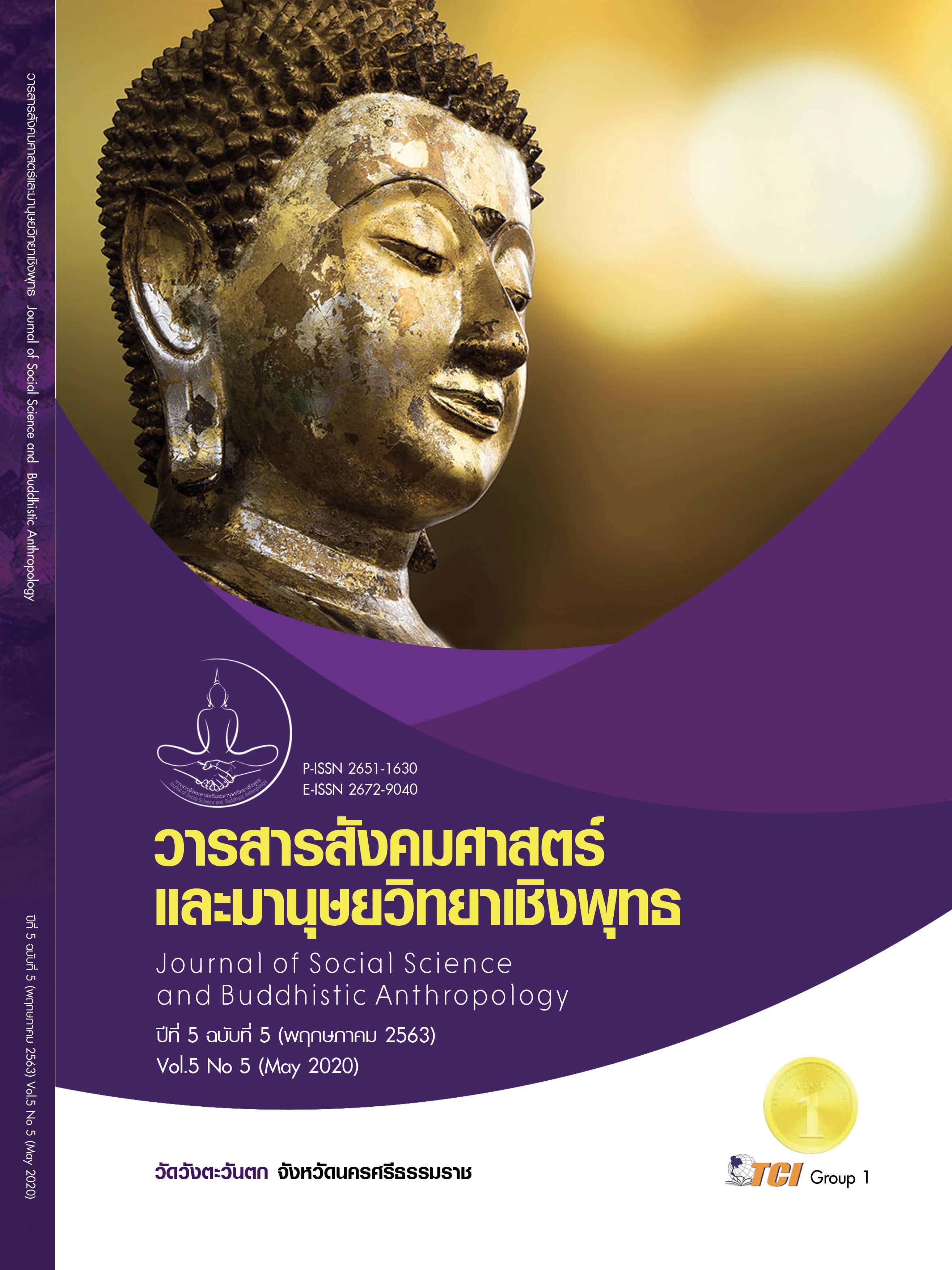THE STRATEGIES FOR ESTABLISHING A TERTIARY INSTITUTION FOR SOFTWARE INDUSTRY AND SMART ENGINEERING SYSTEM IN THAILAND
Keywords:
Strategic Management, Industrial Software, Automation Engineering, SmartAbstract
The purposes of the study were 1) to determine the strategies for establishing a tertiary institution for software industry and smart engineering system in Thailand 2) to determine the expectation of student enrollment; 3) to determine the labor market and 4) to present the strategies for establishing a tertiary institution for software industry and smart engineering system in Thailand. The study population of the quantity research was 400 person divided teacher 156 and students 244 person and the business of 12 provinces in Thailand. The research 100 persons, the quality research were the educational education 19 persons experts. The method to the research were mixing the quantity research statistics use to analyze the data were percentage, frequency, standard deviation, median, and inter quartile range. The quality research use to the Delphi Technique from the 19 person experts, and Focus group use to 7 Person experts from the factory. Based upon the findings of the study, it was concluded that. 1) The determine the strategies for establishing a tertiary institution for software industry and smart engineering system in Thailand with six factors on Strategies for Establishing a Tertiary Institution for Software Industry and Smart Engineering System in Thailand. Setting up the goals, campus arrangement, curriculum arrangement, personnel staff, rules and regulation study, and marketing tendency study. 2) The expectation of students enrollment to study in establishing a tertiary institution for software industry and smart engineering system found at high level. 3) The future labor market trends was also at high level. 4) To present the principle establishing a Tertiary Institution for Software Industry and Smart Engineering System in Thailand.
References
ฉัตรชัย เหล่าเขตการณ์. (2559). การเปรียบเทียบความพึงพอใจในการใช้บัณฑิตกับคุณลักษณะบัณฑิตที่พึงประสงค์สาขาวิชาการจัดการโลจิสติกส์มหาวิทยาลัยธนบุรี. วารสารมนุษยศาสตร์และสังคมศาสตร์มหาวิทยาลัยธนบุรี, 10(22), 9-20.
ทนากร ศรีก๊อ และคณะ. (2561). รูปแบบการจัดการศึกษาระดับปริญญาเอก สาขาการบริหารการศึกษา ของสถาบันอุดมศึกษาเอกชน. วารสารมหาวิทยาลัยนราธิวาสราชนครินทร์, 5(1), 26-46.
ทรรศวรรณ ปรีดาวิภาต และฐะณุพงศ์ ศรีกาฬสินธุ์. (2561). เทคโนโลยีสารสนเทศกับการเปลี่ยนแปลง ของมหาวิทยาลัยในอนาคต. วารสารวิชาการนวัตกรรมสื่อสารสังคม วิทยาลัยนวัตกรรมสื่อสารสังคม มหาวิทยาลัยศรีนครินทรวิโรฒ, 6(2), 51-59.
ธัญญลักษณ์ รุ้งแสงจันทร์. (2561). การรับมือกับการเปลี่ยนแปลงในยุค 4.0. Journal of Social Work , 26(2), 172-204.
ผดุงชาติ สุวรรณวงศ์ และไพฑูรย์ สินลารัตน์. (2542). ทิศทางการปฏิรูปอุดมศึกษาของโลกในทศวรรษที่ 21. กรุงเทพมหานคร: ที.พี.พริ้นท์.
พระราชบัญญัติการศึกษาแห่งชาติ พ.ศ. 2542 และที่แก้ไขเพิ่มเติม (ฉบับที่ 2) พ.ศ. 2545. (2545). ราชกิจจานุเบกษา เล่มที่ 119 ตอนที่ 123 ก (19 ธันวาคม 2545).
รัฐพันธ์ กาญจนรังสรรค์ และคณะ. (2558). การพัฒนาต้นแบบและกลยุทธ์ของมหาวิทยาลัยกีฬาในประเทศไทย. วารสารครุศาสตร์, 43(4), 79-93.
ลดาวัลย์ ทองดี. (2556). เทคโนโลยีกับการพัฒนาในชีวิตประจำวัน. กรุงเทพมหานคร: มหาวิทยาลัยราชภัฏพระนคร.
สำนักงานคณะกรรมการการอุดมศึกษา. (2558). ประกาศคณะกรรมการการอุดมศึกษาเรื่องคู่มือการขอรับใบอนุญาตจัดตั้งสถาบันอุดมศึกษาเอกชน พ.ศ. 2558. เรียกใช้เมื่อ 25 สิงหาคม 2562 จาก http://www.mua.go.th/users/he-commission/doc /law/oheclaw/2558-w-b new u.pdf
สุรีรัตน์ ดวงสุวรรณ. (2558). รูปแบบการบริหารจัดการมหาวิทยาลัยเฉพาะทาง. วารสารมหาวิทยาลัยราชภัฏยะลา, 10(2), 3-19.
สุวิทย์ เมษินทรีย์. (2559). ประเทศไทย 4.0. เรียกใช้เมื่อ 25 สิงหาคม 2562 จาก http://planning2.mju.ac.th/goverment/20111119104835_planning/Doc_25590823143652_358135.pdf
อนุศักดิ์ คงทน. (2556). การพัฒนาระบบบริหารการศึกษาของโรงเรียนทหารปืนใหญ่ ศูนย์การทหารปืนใหญ่ภายใต้กรอบการประกันคุณภาพการศึกษาของกองทัพบก. ใน รายงานการวิจัย. วิทยาลัยเสนาธิการทหาร.
Etzkowitz, H. et all. (2000). The future of the university andtheuniversity ofthefuture evolutionofivorytowertoentrepreneurial paradigm. Research Policy, 29(2),313-330.
Stensaker, B. & Noragrd, J. D. (2001). Innovation and Isomorphism: A Case-Study of University Identity Struggle 1969-1999 Higher Education 42:473-492. Retrieved December 3, 2007, from http://vnweb. hwwilsonweb.com









